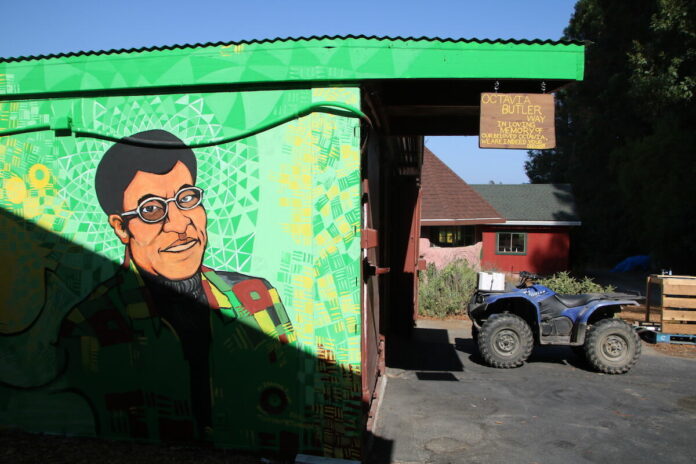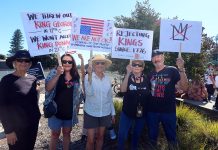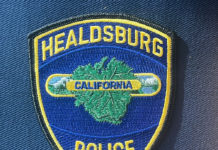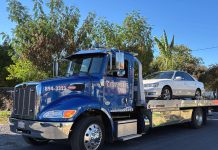It’s not business as usual at EARTHseed Farm, 14-acres in Sebastopol stewarded with permaculture traditions of African and Indigenous peoples.
The writings of Black science-fiction writer Octavia E. Butler inspired the name and various principles at play at the farm that also align with permaculture, founder Pandora Thomas said.
“Permaculture is a design system,” Thomas said, which calls for acting on the assumption that processes, or “systems” are already in motion in the earth.
“You don’t want to infringe on something,” Thomas said. “You want to design with a system, whether it’s a social system or a land-based system.”
Formerly named Gabriel Farm, the focus at EARTHseed is getting to know the processes already happening in the land for this first year, rather than rush to drastic changes — a practice known as “protracted and thoughtful observation,” or PATO, in permaculture, she said.
Understanding the dynamics of non-human kin, like plant and animal life, is part of that observation.
“We made a few adaptations, but we’re trying to just understand all of our non-human kin that live there. We’re a thousand-plus trees, we have a bobcat, a mountain lion, a coyote we just found, also snakes, there’s just everything,” Thomas said.
Thomas said those at the farm are working to get U-Pick and wholesale programs running as well, and will later consider the farm’s longer-term design after gaining familiarity with the land. In full, the property is called EARTHseed Permaculture Center and Farm, with an education center intended to start up in two to five years.
The U-Pick program is open to everyone, Thomas said. EARTHseed Farm also offers “Black to the Land” events specifically for Black people to gather and experience the farm.
The U-Pick experience
Visits to the farm are by appointment only now, Thomas said. EARTHseed will be hosting U-Pick days on designated Saturdays across the season that can be booked by the week to pick fruit, according to the farm’s website here.
“In the U-Pick Program, you harvest, we weigh and you pay by the pound,” the EARTHseed website reads, detailing visits have a $25 entry fee for a 60- to 90-minute session. Individuals can bring up to five people in a group for one $25 appointment. New appointment slots are opened Tuesdays before the coming Saturday U-Pick days, open from 10 a.m. to 5 p.m., per the website. People who want to participate cannot schedule their visit ahead of time, however.
“We’re working more with wholesale partners that are mission-aligned, that really can meet us where we’re at this year, so that’s exciting,” Thomas said. “We hope to be working with one partner who will get it out to certain schools and then we are donating fruit to a few different partners as well.”
At the farm store, visitors can buy hand salves, sage and lavender bundles, drinks, popsicles, African baskets and other items during their U-Pick appointments, according to the farm’s website.
In August, the land yields blackberries, raspberries, pluots, Gravenstein and McIntosh Apples and with September come raspberries and Braeburn, Gala and Gilbert Golden Delicious Apples. Further, the farm store sells various Asian pears from mid-August to mid-November, in varieties like Shinseki, Chojuro, Hosui, 20th Century, Ya Li, Shinko and Niitaka.
A way of life and design
Thomas’ approach to EARTHseed pulls together many traditions, principles and practices, namely permaculture, Sankofa, ancestral guidance and Octavia Butler’s writings that speak to a way of going through life, whether that’s for plants, animals, humans or all of the above.
Butler famously wrote “Parable of the Sower” and its sequel examining a dystopian future of economic collapse, climate change and social inequities and a religion called “Earthseed” that teaches “God is Change.”
None of what’s happening on the farm is exactly new and the teachers Thomas learned from are too many to count, she said, but EARTHseed’s development is about remembering and “lifting up how people of African ancestry and Indigenous ancestry have been doing it.”
Thomas said she lives by Sankofa, a word from the Akan people of West Africa, which is also the Bono Adinkra symbol of a mythical bird with its feet facing forward as its head turns backwards, an egg in its mouth. Various translations point to its meaning as guidance to remember past lessons as one moves into the future.
Stockton University in New Jersey uses the translation to “Go back and get it,” or literally, “It is not taboo to go back for what you forgot (or left behind).”
Thomas’ grandparents on her mother’s side were sharecroppers in South Carolina, and she said her family and ancestors helped her become aware of the relationship humans can have with their non-human kin, their relations with land and animals.
“And they taught me to love and appreciate everyone, all living beings, animal and non. It’s also part of our African ancestry throughout different African cultures. There’s a deeper understanding of the relationship between human and nonhuman, so I think it was ingrained in me, born into me,” she said.
Thomas explained there are many time-honored African principles of tending to the earth, “so I’ve had to kind of go back and learn those practices, as they’re often not shared when you think about who are environmentalists. It comes from my African and Native American roots.”
The dream of creating a place where people can reconnect with African and Indigenous land practices arose with her experience of her own family’s lack of access to much land, aside from a small backyard.
“I’d say my whole life, knowing we used to be able to steward land, but it wasn’t land we owned — they were sharecroppers — I’ve always wanted to be able to steward land that can help our communities heal.”
Thomas continued, “And the more I’ve learned and taught, every time I would take groups or work in environmental education centers or permaculture centers, they were never owned by communities of color. And there were some people of color teaching but I’ve probably taught at over 30 all over the world, and so there’s just a big need.”
Sonoma County isn’t just home to EARTHseed, she said, but Heron Shadow, 7.6 acres “on the ancestral lands of the Coast Miwok and Southern Pomo Peoples of the Federated Indians of Graton Rancheria,” and “a Native place of refuge and learning for community engagement, connection to the land, growing Indigenous foods, and nourishing Indigenous and intercultural relations,” according to the Cultural Conservancy.
“We feel like we’re part of this growing movement of our communities, reclaiming land that has been taken from Indigenous communities years ago and trying to steward it in ways that are more in alignment with permaculture principles and sacred land stewarding instead of just commercial farm production,” Thomas said.
The way any change, big or small, ripples through the dynamics at work in ecology and human systems is a major takeaway from Butler’s writings that Thomas said allowed for complexity. “There are just so many things that just aren’t black or white, and it’s very nuanced and that is what life is,” she said.
“Octavia’s writings also really challenge us to look deep and she has this saying, ‘All that you touch, you change. All that you change, changes you. The only lasting truth is change.’ And that is very much permaculture and land,” she said, explaining that permaculture is deeply based on one’s relationships.
“Everything you do has a consequence, many unintended. It’s like all that you touch, you change. On a farm, if you do one thing to one system, you might be impacting the wildlife unintentionally. If you spray something that’s better to get rid of this insect, you might be doing something harmful to the taproot of the tree, you know?” Thomas finished, “Her sayings are so in alignment with how do we observe more, slow down, and be in more relationship.”
Takeaways from Butler’s works don’t stay within the fences of farmland, but help to form a nuanced understanding of human systems and relationships, too. “And she does not just say, you know, ‘White people are bad, Black people-‘ it’s just all these different characters, but the systems we’re in, which are really damaging to all of us, but damaging many groups worse and privileging certain groups more, she unpacks that,” Thomas said. “And that’s again, same when you sit and be with a piece of land, there is no final answer. You’re always going to have to check on the impacts of your actions.”
She compared this to building up soil, where a person must also pay attention to the water it receives and what will grow and what healthy organisms are in the soil underneath.
“So, EARTHseed will be led by people of Afro-Indigenous ancestry, it’s for everybody that we’re in relationship with — I’m just waiting to see what kind of conversations can we have on this land, which is a special land that really wants to heal,” she said.









